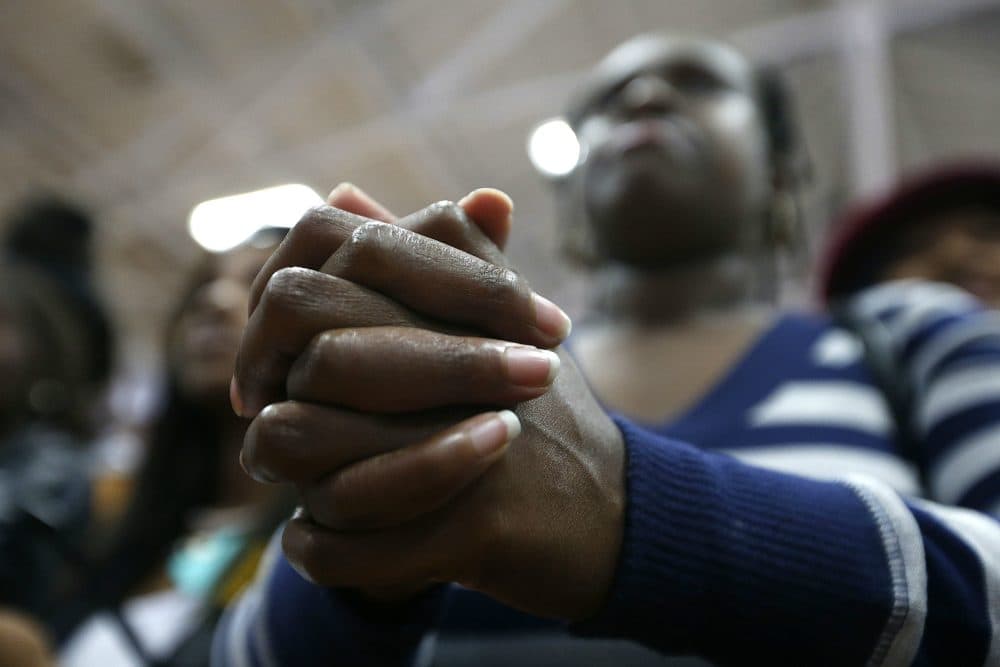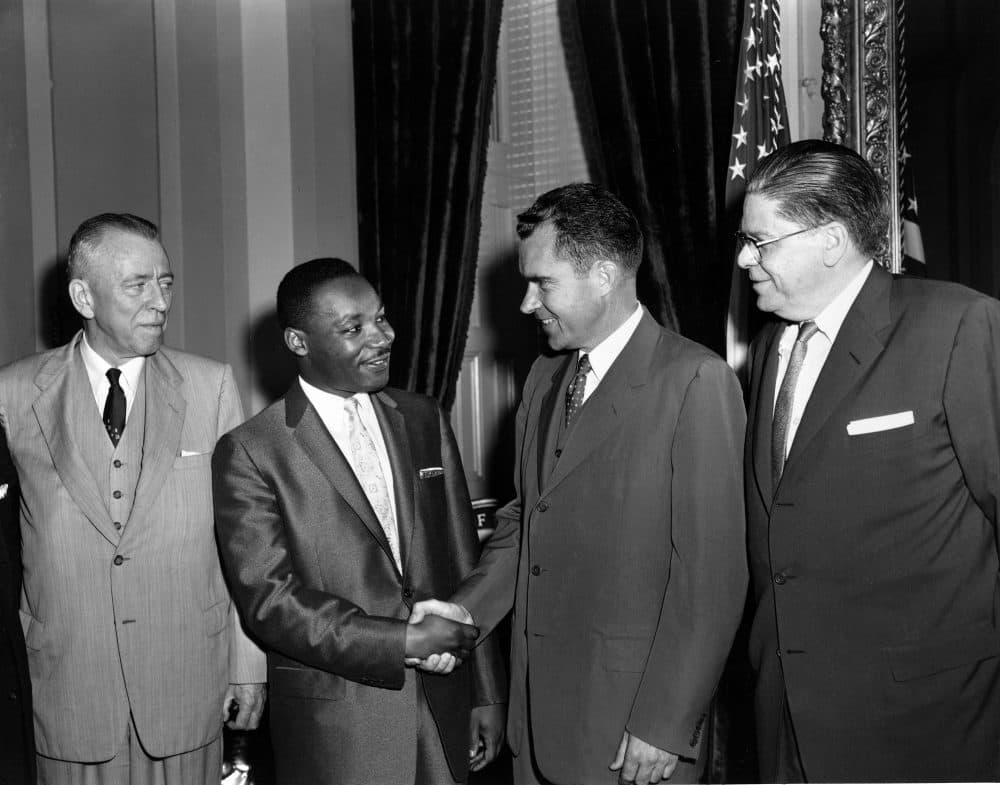Advertisement
How The GOP Lost The African-American Vote

According to a recent NBC News/Wall Street Journal poll, Republican presidential nominee Donald Trump is supported by only 1 percent of African-American voters nationwide. While this result isn’t surprising given his many controversial statements about communities of color (“You can go to war zones in countries that we are fighting and it’s safer than some of our inner cities...”), it doesn’t tell the full story. Republicans seeking the White House have not done well among blacks for several election cycles dating back over half a century.
The 1960 presidential race was the turning point. In that memorable donnybrook, upstart Democratic Sen. John F. Kennedy of Massachusetts was able to eke out a razor thin victory over then-sitting GOP Vice President Richard Nixon. The winning margin was less than 1 percent of the popular vote and blacks played a decisive role in putting Kennedy over the top.
Republican presidential nominee Donald Trump is supported by only 1 percent of African-American voters nationwide.
Ironically, Nixon headed into the campaign as the candidate with the closest ties to the African-American community. As a member of the Eisenhower administration, he had gone out of his way to support the landmark Civil Rights Act of 1957, which attempted to strengthen voting rights for blacks. He had also befriended an up and coming young civil rights activist named Martin Luther King Jr.
“[Nixon] has one of the most magnetic personalities that I have ever confronted,” said King after meeting the vice president for the first time in Washington, D.C. “When you are close to Nixon he almost disarms you with his apparent sincerity.”
Kennedy, in contrast, had no substantial civil rights record to speak of or ties to the African-American community. His selection of Senate Majority Leader Lyndon B. Johnson of Texas as his running mate didn’t win him any friends of color either. Despite his later championing of the Civil Rights Act of 1964 and the Voting Rights Act of 1965, Johnson had strongly toed the segregationist line in his first two decades in Congress. “[Kennedy] seemed quite oblivious to the pending social revolution,” observed future U.S. Supreme Court Justice Abe Fortas.
So why was Kennedy able to capture the overwhelming support of black voters in 1960?

It came down to a pair of timely telephone calls. In late October, King was languishing in a Georgia prison cell due to trumped up charges stemming from an earlier traffic violation. His pregnant wife, Coretta Scott King, was understandably worried about his physical safety due the notorious reputation of the white-dominated southern criminal justice system then in place. “They’re going to kill him. I know they’re going to kill him,” she said. To show support, two of Kennedy’s top liberal advisers — brother-in-law Sargent Shriver and future Pennsylvania U.S. Sen. Harris Wofford — urged him to call Mrs. King and offer his sympathy.
Kennedy agreed on the spot.
“I understand you are expecting a baby, and I just wanted you to know that I was thinking of you and Dr. King,” Kennedy said. Shriver was overjoyed. “It showed he had heart,” he later said. “Nowadays that’s nothing to say, but in those days that meant a lot to black people, if you showed you had heart, that was a huge difference.”
Advertisement
After being initially skeptical, Bobby Kennedy — the candidate’s younger brother and impulsive campaign manager — followed up with a phone call of his own to sentencing Judge J. Oscar Mitchell. “I thought about it and I kept thinking [King’s incarceration] was so outrageous,” Kennedy said. “I’d made up my mind that somebody had to talk to that judge.” King was soon released on bond. “You are now an honorary brother!” black campaign aide Louis Martin told Kennedy.
The party of Lincoln has thus become the party of Jefferson Davis.
Nixon, meanwhile, kept publicly quiet on the issue. Although behind the scenes, he had lobbied the Justice Department to intervene on King’s behalf, he was summarily turned down. Martin Luther King Jr. never forgave him. “[Nixon] had been supposedly close to me, and he would call me frequently about things, getting, seeking advice,” he said. “And yet, when this moment came, it was like he had never heard of me, you see. So this is why I really considered him a moral coward.”
This moral cowardice came with a political price tag. On election day, black voters in such critical swing states as Illinois, Michigan, New Jersey and South Carolina turned out in large numbers for John Kennedy. Nixon lost and then proceeded to write off the African-American vote to the Democrats in his next two bids for the presidency. He won in 1968 and 1972 by employing a “Southern Strategy” that appealed directly to disillusioned white southerners unhappy with the social and political gains made by blacks in the 1960s. Republican presidential office seekers up to and including Trump have largely stuck to this narrow political game plan ever since. The party of Lincoln has thus become the party of Jefferson Davis.
Makes you wonder how things might have turned out differently if Nixon had placed telephone calls to Coretta Scott King and J. Oscar Mitchell, too.
